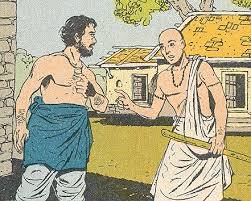Discovery of the Cocoon
A man found a cocoon of a butterfly. One day a small opening appeared. He watched the butterfly for several hours as it struggled to force its body through that little hole. Then it seemed to stop making any progress. It appeared as if it had gone as far as it could and could go no further. So the man decided to help the butterfly. He took a pair of scissors and snipped off the remaining bit of the cocoon. The butterfly then emerged easily but with a swollen body and small shriveled wings.
The Man’s Expectation
The man continued to watch the butterfly because he expected that at any moment, the wings would enlarge and expand to be able to support the body, which would contract in time. Neither happened! In fact, the butterfly spent the rest of its life crawling around with a swollen body and shriveled wings. It was never able to fly.
The Unintended Consequence
What the man, in his kindness and haste, did not understand was that the restricting cocoon and the struggle required for the butterfly to get through the tiny opening was God’s way of forcing fluid from the body of the butterfly into its wings so that it would be ready for flight once it achieved its freedom from the cocoon.
Moral of the Story
The Importance of Struggles
In the same way, sometimes struggles are exactly what we need in our lives. We should develop the understanding by reading the scriptures that each hurdle in life is sent by Krishna to make us stronger. If Krishna allowed us to go through our lives without any obstacles, it would cripple us.
The Example of King Anga
In Srimad Bhagavatam, we find that King Anga was sonless for a long time. After he offered oblations to Lord Vishnu, his wife gave birth to a son, Vena, who grew up to be a greatly irreligious person. After seeing the cruel and merciless behavior of his son Vena, King Anga became greatly aggrieved and lamented that he was greatly unfortunate to have a bad son.
Acceptance and Detachment
But the wonderful thing is that, in the course of time, King Anga considered his bad son his friend since he was helping him to become detached from his home. The perception of the King is unbelievable and a great lesson for those of us who are so much attached to our family. In verse 4.13.46, the King thinks,
kad-apatyam varam manye sad-apatyaac chucam padaat nirvidyeta grhaan martyo yat-klesa-nivahaa grhaah
“A bad son is better than a good son because a good son creates an attachment for home, whereas a bad son does not. A bad son creates a hellish home from which an intelligent man naturally becomes very easily detached.”
Final Resolution
Thus thinking, King Anga gave up all attraction for his greatly opulent kingdom and, unseen by anyone, he very silently gave up his home and opulence and proceeded towards the forest.



